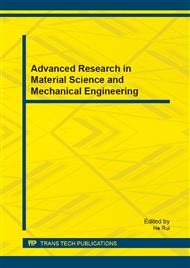p.667
p.672
p.678
p.683
p.688
p.698
p.704
p.709
p.716
Decentralized Fusion Filtering with Different Sensor Memories in Dynamics System with Uncertainties
Abstract:
This paper is concerned with the decentralized sliding window Kalman filter for multisensor discrete-time dynamic linear systems having different sensor memories. The proposed filtering is presented that combines the Kalman filter and sliding window strategy. A decentralized fusion with the weighted sum structure is applied to the local sliding window Kalman filters (LSWKFs) having different sensor memory size. The proposed decentralized algorithm has a parallel structure and allows parallel processing of observations, thereby it more reliable than the centralized version if some sensors become faulty. Moreover, the choice of sliding window strategy makes the proposed algorithm robust against dynamic model uncertainties. The derivation of the error cross-covariances between the LSWKFs is the key idea of this paper. The application of the proposed decentralized filer to linear discrete-time dynamic systems within a multisensor environment demonstrates its high accuracy and computational efficiency.
Info:
Periodical:
Pages:
688-697
Citation:
Online since:
November 2013
Authors:
Price:
Сopyright:
© 2014 Trans Tech Publications Ltd. All Rights Reserved
Share:
Citation:


